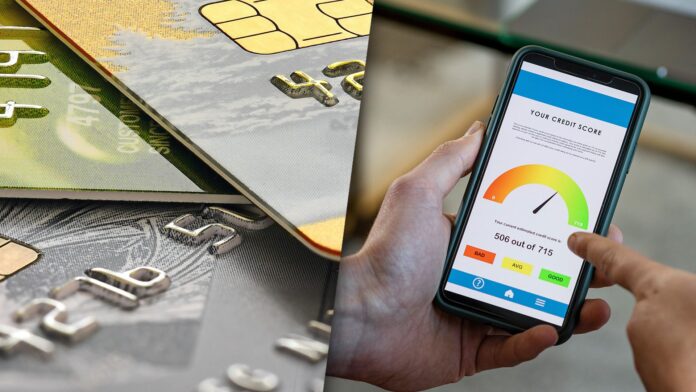In an age where transactions are rapidly becoming digitized, credit cards have emerged as a pivotal financial tool.
As we approach the end of 2023, many are on the hunt for the best credit cards 2023 has to offer, aiming to benefit from superior rewards, interest rates, and other perks.
However, diving into the world of credit without adequate understanding can lead to financial missteps. This guide is crafted to provide you with a comprehensive look into credit cards, ensuring you make informed decisions.
What is a Credit Card?
At its core, a credit card is a financial instrument issued by a bank or a credit card company that allows you to borrow funds. The cardholder can purchase goods or services based on their promise to pay back the borrowed amount along with any potential interest.
The Anatomy of a Credit Card

Every credit card comes adorned with several features that serve specific purposes:
- Card Number: This 16-digit number is unique to every card and identifies its issuer and the cardholder account.
- Expiration Date: Just like any other product, a credit card isn’t forever. This date signifies the card’s end of validity.
- CVV: Standing for Card Verification Value, it’s a 3 or 4-digit code providing an extra security layer during transactions.
- Magnetic Stripe: This black strip on the back stores data and is swiped through card readers.
- Chip: A newer addition, this embedded microchip offers enhanced security by creating a unique transaction code for every purchase.
The Allure of Credit Cards
The growing popularity of credit cards isn’t just due to their purchasing power. They come loaded with a slew of benefits:
- Rewards and Cashbacks: Many cards reward you with points or cashback for spending. These can be redeemed for various perks like travel, merchandise, or even statement credits.
- Building Credit History: Timely payments and responsible use of a credit card can help in building a positive credit history, essential for loans and mortgages.
- Global Acceptance: Credit cards are accepted globally, making them an excellent companion for international travel.
- Emergency Buffer: They can act as a financial cushion in emergencies when immediate cash isn’t available.
Things to Consider Before Applying

Dazzled by the shiny plastic, many often overlook the responsibilities that come with it. Here’s what you should ponder before applying:
- Interest Rates: Represented as Annual Percentage Rate (APR), this is the interest you’ll pay if you don’t clear the full balance monthly.
- Fees and Charges: From annual fees to late payment penalties, get familiar with all potential costs associated with the card.
- Credit Limit: This is the maximum amount you can charge on the card. It’s determined by the issuer based on your creditworthiness.
- Grace Period: This is the time you have to pay off new charges without incurring interest. It usually extends from the end of a billing cycle to the next due date.
- Rewards and Perks: While tempting, ensure the credit card rewards align with your spending habits and that the potential benefits outweigh any costs.
The Responsibilities of a Cardholder
Owning a credit card isn’t just about swiping it at checkout. It’s crucial to adopt financial discipline:
- Timely Payments: Always pay your bills on time. Late payments can negatively impact your credit score and result in additional fees.
- Understand Your Statement: Regularly review your monthly statement. This not only helps in tracking your spending but also in identifying any unauthorized transactions.
- Stay Within Limits: Maxing out your credit card isn’t a sign of affluence; it’s a red flag for creditors and can harm your credit score.
- Notify Issuers About Changes: Be it a change in address or an impending international trip, keep your issuer in the loop to avoid potential hiccups.
The Potential Pitfalls
Credit cards, if misused, can lead to:
- Debt Spiral: Accumulating large balances and only paying the minimum due can trap you in a cycle of ever-growing debt due to compounding interest.
- Credit Score Damage: Irresponsible usage, like missed payments or maxing out limits, can severely dent your credit score.
- Overspending: The convenience and rewards can sometimes lead to spending more than one can afford, resulting in financial strain.
A Reality Check on Credit Card Myths

Several myths surround credit cards. Two of the most common ones are:
- Carrying a Balance Boosts Credit Score: Contrary to popular belief, you don’t need to carry a balance or incur interest to build credit. Paying in full every month is the best practice.
- One Card is Enough: While it’s vital not to stretch beyond your means, having multiple cards can be beneficial. It can increase your total available credit, thus reducing your credit utilization ratio—a key factor in credit scoring.
Deciphering the Types of Credit Cards
Different strokes for different folks, and the same goes for credit cards. Recognizing the various types can help you choose the one best tailored to your needs:
Standard Credit Cards: Often dubbed as “plain-vanilla,” these cards have no frills. They offer a clear line of credit without the distractions of rewards or benefits, making them ideal for straightforward users.
Rewards Credit Cards: As the name implies, these cards reward users for their spending. Types of rewards can vary—from airline miles and hotel points to cashback and shopping discounts.
Student Credit Cards: Designed for college students, these cards often come with lower credit limits and might offer rewards tailored to college student life, like cash back on textbooks or dining.
Business Credit Cards: For entrepreneurs and business owners, these cards cater to business-related expenses. They might come with benefits like higher credit limits, expense tracking tools, or rewards on office supplies.
Charge Cards: Unlike conventional credit cards, charge cards do not have a preset spending limit. However, the balance must be paid in full every month.
Reading the Fine Print: The Credit Card Agreement

It’s easy to skip the lengthy agreement that accompanies your credit card, but understanding this document is crucial. The agreement outlines terms of use, fees, APRs, and other important tidbits. A few things to look out for:
Introductory Rates: Many cards offer lower interest rates as an introductory incentive. However, these rates often shoot up after the introductory period. Knowing when and to what extent they’ll rise is essential.
Cash Advance Fees: Withdrawing cash using a credit card can come with steep fees and higher interest rates. The agreement provides details on these costs.
Foreign Transaction Fees: If you travel internationally, it’s good to be aware that your card charges additional fees for overseas transactions.
Penalty APRs: Some cards might increase your interest rate if you miss a payment or commit another violation.
The Connection Between Credit Cards and Credit Scores

Your credit card usage plays a massive role in determining your credit score. Several factors intertwine the two:
Credit Utilization Ratio: This is the ratio of your credit card balance to your credit limit. A lower ratio is preferred as it indicates responsible usage.
Length of Credit History: The duration you’ve had credit accounts open, especially if managed well, can positively influence your score.
New Credit: Opening multiple new credit accounts in a short time can negatively impact your score, indicating potential financial distress.
Payment History: Perhaps the most critical factor—timely payments boost your score, while late payments, especially those over 30 days late, can severely hurt it.
Wrapping Up: Empower Your Financial Journey
Venturing into the world of credit cards can be both exhilarating and daunting. By understanding the workings, benefits, and potential pitfalls of credit cards, you empower yourself to harness their potential fully.
The key is to strike a balance between enjoying the perks and being financially responsible. So, as you contemplate plunging into the vast ocean of credit, let knowledge be your guiding lighthouse, ensuring you sail smoothly toward your financial horizons.







